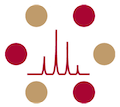2019 SUMS-RAS

Enabling Technologies, Future Directions
Thursday October 10, 2019
Frances C. Arrillaga Alumni Center
The SUMS Research Applications Symposium is a full day of mass spec-related research, networking, and information on the latest groundbreaking technologies and applications. The 2019 SUMS-RAS Keynote Speaker, Prof. Garry Nolan, is a pioneer, combining multiple technologies into exciting new enabling methodologies. As exemplified by the keynote, the symposium theme "Enabling Technologies, Future Directions" celebrates technological innovations and explores future potential. Come and connect with an enthusiastic community of scientists, and participate in sparking new scientific opportunities and directions.
|
Prof. Garry P. Nolan |
Keynote: Pathology from the Molecular Scale on Up |
|---|---|

|
High parameter single cell analysis has driven deep understanding of immune processes. Using a next-generation single-cell “mass cytometry” platform we quantify surface and cytokine or drug responsive indices of kinase target with 45 or more parameter analyses (e.g. 45 antibodies, viability, nucleic acid content, and relative cell size). Similarly, we have developed two advanced technologies termed MIBI and CODEX that enable deep phenotyping of solid tissue in both fresh frozen and FFPE formats (50 – 100 markers). Collectively, the systems allows for subcellular analysis from the 70nm resolution scale to whole tissue in 3D. I will present evidence of deep internal order in immune functionality demonstrating that differentiation and immune activities have evolved with a definable “shape”. Further, specific cellular neighborhoods of immune cells are now definable with unique abilities to affect cellular phenotypes—and these neighborhoods alter in various cancer disease states. In addition to cancer, these shapes and neighborhoods are altered during immune action and “imprinted” during, and after, pathogen attack, traumatic injury, or auto-immune disease. Hierarchies of functionally defined trans-cellular modules are observed that can be used for mechanistic and clinical insights in cancer and immune therapies. |
PROGRAM
|
Time: |
Activity: |
|---|---|
|
8:00 am
|
Registration & Breakfast
|
|
Exhibits open 8:00 am - 3:30 pm
|
|
|
8:30 am
|
Scientific Session I
|
|
Welcome & Introductory Remarks
Allis Chien, PhD - Director of SUMS, Stanford University
|
|
| Tandem MS Strategies for Intact N- & O-Glycopeptide Characterization Nicholas Riley, PhD - Dept. of Chemistry, Stanford University |
|
|
Marshall Bern - Vice President, Protein Metrics
|
|
|
Unraveling the Molecular Interactions of the Influenza A Virus Matrix Layer
Lisa Selzer, PhD - Dept. of Genetics, Stanford University School of Medicine
|
|
|
Navigating the Tissue Imaging Landscape Requires the Proper Tool(s) for the Job
Stephen Hattan, PhD - Principal Scientist, Waters Corporation
|
|
|
10:00 am
|
Poster Session - view abstracts
|
|
11:00 am
|
Keynote:
Professor Garry Nolan, PhD - Baxter Laboratories, Stanford UniversityPathology from the Molecular Scale on Up |
|
12:00 pm
|
Lunch, Discussion & Exhibits |
| 1:00 pm | Scientific Session II |
|
4D Omics and diaPASEF Enabled by Trapped Ion Mobility Spectrometry (TIMS)
Christopher Adams, PhD - West Coast Proteomics Manager, Bruker
|
|
|
|
Overcoming the Aged Niche to Improve Skeletal Muscle Regeneration
Adelaida Palla, PhD - Dept. of Microbiology & Immunology, Stanford University School of Medicine
|
|
|
Surequant: Novel Turnkey Targeted Toolbox for Routine Quantitative Pathway Proteomics
Aaron Gajadhar, PhD - Strategic Marketing Specialist, Thermo Fisher Scientific |
|
2:00 pm
|
Coffee Break
|
|
2:30 pm
|
Lightning Talk Series
|
|
Characterization of Oligonucleotide Biotransformation using Ion-Pairing Reversed-Phase Liquid Chromatography Coupled with High Resolution Mass Spectrometry
Babak Basri, PhD - Pharmacokinetics & Drug Metabolism, Amgen |
|
|
Coated Blade Spray - Mass Spectrometry (CBS-MS) for Clinical Toxicology Testing in Urine
Shirin Hooshfar, PhD - Dept. of Laboratory Medicine, UCSF |
|
|
A Quantitative Proteome Map of the Human Body
Lihua Jiang, PhD - Dept. of Genetics, Stanford University School of Medicine |
|
|
artMS: An R Package for the Analysis of Large-Scale Proteomic Datasets
David Jimenez-Morales, PhD - Dept. of Medicine - Cardiovascular Medicine, Stanford University School of Medicine |
|
|
Novel Metabolic Profiling using a Single Injection with Reversed-Phase/Ion Exchange Chromatography & Mass Spectrometry
Anthony Le - Dept. of Pathology, Stanford University School of Medicine |
|
|
3:20 pm
|
Closing Reception, Awards & Raffle
|

